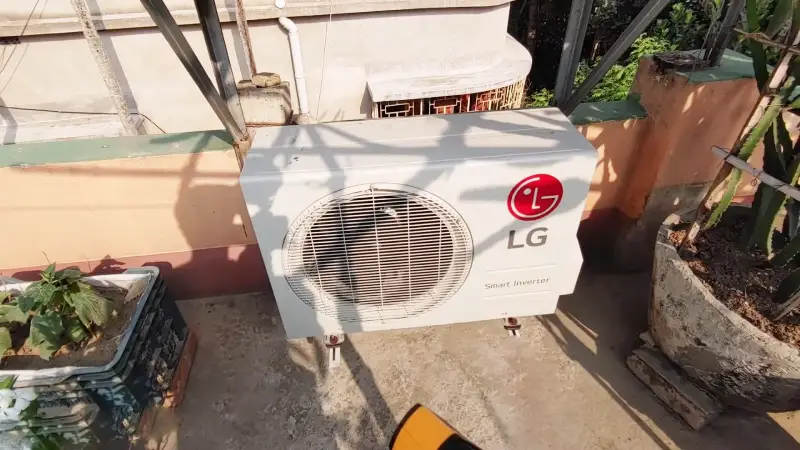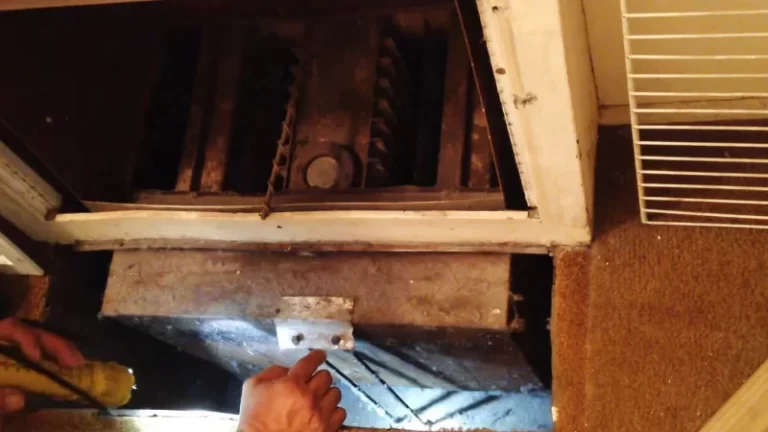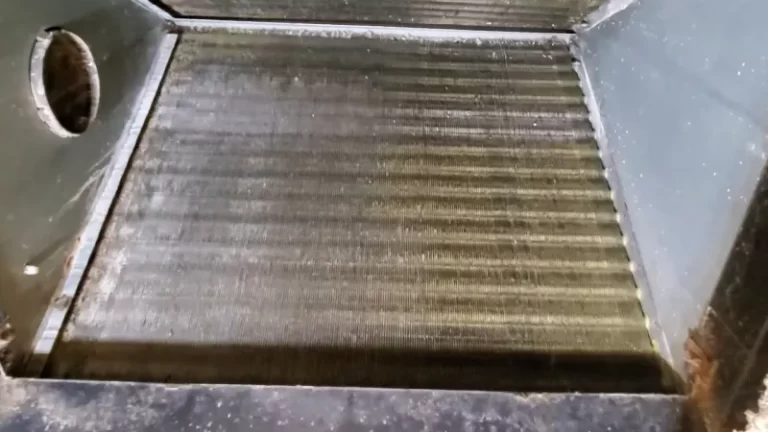What Causes Low Suction Pressure High Head Pressure?
Low suction pressure high head pressure is a common issue that can occur in an air conditioning (AC) system. This condition is characterized by a decreased refrigerant pressure in the system, known as suction pressure, and an increased output pressure in the compressor, known as head pressure.
Understanding the causes and symptoms of this issue is important for maintaining the overall efficiency and effectiveness of your AC system. If left unaddressed, low suction pressure high head pressure can lead to reduced cooling capacity, increased energy consumption, and poor indoor air quality.
It’s essential to address this problem as soon as possible to prevent further damage to the system and ensure that it is functioning properly.
You'll Learn About
Low Suction Pressure High Head Pressure Issue
Low suction pressure and high head pressure is a condition that can occur in an air conditioning (AC) system. This condition is characterized by a decreased refrigerant pressure in the system, known as suction pressure, and an increased output pressure in the compressor, known as head pressure.
This condition can be caused by a number of factors, including a malfunctioning or defective thermostatic expansion valve (TXV) which regulates the flow of refrigerant into the evaporator. Other possible causes include a restriction in the refrigerant flow, a problem with the compressor, or a problem with the condenser.
To fix this issue, a professional technician will typically diagnose the root cause of the problem, which may involve inspecting the system for leaks or other issues and performing tests to measure the pressure and temperature of the system. Depending on the specific cause of the low suction pressure and high head pressure, the technician may need to replace or repair the TXV, replace or repair other components of the system, or add refrigerant to the system.
It’s important to note that this issue should be handled by an HVAC professional as it could cause damage to the system or even personal injury if not handled correctly.

Causes and Symptoms of Low Suction Pressure High Head Pressure
| Cause | Symptom |
|---|---|
| Malfunctioning or defective thermostatic expansion valve (TXV) | Reduced cooling capacity |
| Restriction in the refrigerant flow | Reduced airflow from vents |
| Problem with compressor | Increased energy consumption |
| Problem with condenser | Poor indoor air quality |
Causes of Low Suction Pressure High Head Pressure
1. Defective Thermostatic Expansion
One of the most common causes of low suction pressure high head pressure is a malfunctioning or defective thermostatic expansion valve (TXV). The TXV is responsible for regulating the flow of refrigerant into the evaporator, and a malfunctioning or defective valve can cause a restriction in refrigerant flow and lead to low suction pressure and high head pressure.
2. Restriction in the Refrigerant Flow
Another cause of low suction pressure high head pressure can be a restriction in the refrigerant flow. This can be caused by a blockage in the refrigerant lines or a problem with the compressor, and can lead to low suction pressure and high head pressure.
3. Faulty Compressor
A problem with the compressor, such as a malfunctioning compressor or a compressor that is overheating, can also cause low suction pressure and high head pressure. A compressor that is not working properly can decrease the refrigerant flow and increase the head pressure.
4. Faulty Condenser
A problem with the condenser, such as a blockage or a malfunctioning fan, can also cause low suction pressure and high head pressure. The condenser is responsible for releasing the heat absorbed by the refrigerant, if it’s not working correctly, it can cause a restriction in the refrigerant flow and lead to low suction pressure and high head pressure.
Symptoms of Low Suction Pressure High Head Pressure
1. Reduced Cooling Capacity
One of the most obvious symptoms of low suction pressure high head pressure is a reduced cooling capacity. When the suction pressure is low and the head pressure is high, the air conditioner may not be able to cool the air as effectively, resulting in warmer air coming from the vents.
2. Reduced Airflow From the Vents
Reduced airflow from the vents is another symptom of low suction pressure high head pressure. When the suction pressure is low, the compressor may not be able to push as much refrigerant into the evaporator, resulting in reduced airflow.
3. Increased Energy Consumption
Increased energy consumption is another symptom of low suction pressure high head pressure. When the AC system is not working efficiently, it may use more energy to try to cool the air, resulting in higher energy bills.
4. Poor Indoor Air Quality
Poor indoor air quality is also a symptom of low suction pressure high head pressure. When the air conditioner is not working correctly, it may not be able to remove contaminants and moisture from the air, resulting in poor indoor air quality.
How to Diagnose and Fix Low Suction Pressure High Head Pressure
Step 1: Inspect the System for Leaks
To diagnose and fix low suction pressure high head pressure, the first step is to inspect the system for leaks or other issues. This can be done by visually inspecting the system and checking for any signs of leakage or damage. Additionally, a professional technician may use special tools, such as a refrigerant leak detector, to identify any leaks in the system.
Step 2: Measure the Pressure and Temperature
The next step is to measure the pressure and temperature of the system. This can be done by using a refrigerant pressure gauge and thermometer. The technician will measure the suction pressure, head pressure, and temperature at various points in the system to determine if they are within the normal range.
Step 3: Replace or Repaire Components
If a malfunctioning or defective TXV is identified as the cause of the issue, it will need to be replaced or repaired. The technician will remove the old valve and install a new one or repair the existing valve.
If other system components, such as the compressor or condenser, are found to be the cause of the issue, they will need to be replaced or repaired. A compressor that is overheating or not working properly, for example, may need to be replaced.
Add Proper Refrigerant
If the system is low on refrigerant, the technician will add refrigerant to the system. This can be done by connecting a refrigerant charging hose to the low-pressure side of the system and adding the refrigerant until the system is full.
Which Things You Need to Check?
Check the Air Filter
A dirty air filter can restrict airflow and cause the system to work harder than it needs to, which can lead to low suction pressure and high head pressure. Make sure to check and replace the air filter regularly.
Check the Evaporator Coil
The evaporator coil is responsible for absorbing heat from the air inside your home. If it is dirty or covered in debris, it can cause low suction pressure and high head pressure. Clean the evaporator coil or have a professional clean it for you.
Check the Condenser Coil
The condenser coil is responsible for releasing heat outside your home. If it is dirty or covered in debris, it can cause low suction pressure and high head pressure. Clean the condenser coil or have a professional clean it for you.
Check the Refrigerant Level
If the system is low on refrigerant, it can cause low suction pressure and high head pressure. Have a professional check the refrigerant level and add more if needed.
Check the Compressor
The compressor is responsible for compressing the refrigerant and moving it through the system. If it is malfunctioning, it can cause low suction pressure and high head pressure. Have a professional check and repair or replace the compressor if needed.
Check the Ducts
If the ducts are leaking or have holes, it can cause low suction pressure and high head pressure. Have a professional check and repair or replace the ducts if needed.
Check the Thermostat
If the thermostat is malfunctioning, it can cause low suction pressure and high head pressure. Have a professional check and repair or replace the thermostat if needed.
Prevention and Maintenance
Preventing low suction pressure high head pressure is important for maintaining the efficiency and longevity of an air conditioning system. One of the best ways to prevent this issue is by performing regular maintenance on the system. This includes cleaning or replacing air filters, checking for leaks, and inspecting the system for any signs of wear or damage.
Regular maintenance can also include having a professional technician inspect the system and perform any necessary repairs or adjustments. By catching issues early on, it can help prevent more serious problems from developing and also prolong the life of your AC system.
In addition to regular maintenance, there are also several tips for preventing low suction pressure high head pressure:
- Keep the area around the outdoor unit clear of debris and foliage to ensure proper airflow.
- Make sure the thermostat is set to the correct temperature and that the thermostat’s sensor is properly calibrated.
- Keep the air filter clean and replace it as needed to ensure proper airflow.
- Keep the condenser coils clean.
- Monitor the refrigerant levels in the system and have a professional add refrigerant as needed.
By following these tips and performing regular maintenance, you can help prevent low suction pressure high head pressure and keep your AC system running efficiently.
Frequently Asked Questions
What Are the Common Causes of Low Suction Pressure High Head Pressure?
The most common causes of low suction pressure high head pressure are a malfunctioning or defective thermostatic expansion valve (TXV), restriction in refrigerant flow, problem with compressor, and problem with condenser.
A malfunctioning or defective TXV can cause the refrigerant to flow too quickly or too slowly, which can lead to low suction pressure and high head pressure. Restrictions in the refrigerant flow can also cause low suction pressure and high head pressure.
A problem with the compressor can also lead to this issue, as the compressor may not be able to pump the refrigerant properly. Finally, a problem with the condenser can also cause low suction pressure and high head pressure.
How Does Low Suction Pressure High Head Pressure Affect the Performance of the Ac System?
Low suction pressure high head pressure can affect the performance of the AC system in several ways. The most obvious symptom is reduced cooling capacity, as the system may not be able to properly cool the air.
This can lead to increased energy consumption as the system has to work harder to achieve the desired temperature. Reduced airflow from vents is another symptom of low suction pressure high head pressure.
This can result in poor indoor air quality, as the air in the room may not be properly circulated.
Can Low Suction Pressure High Head Pressure Damage the Ac System?
Low suction pressure high head pressure can damage the AC system if it is not addressed promptly and professionally. The increased pressure on the compressor can cause damage to the compressor, which can be costly to repair or replace.
Additionally, the reduced cooling capacity and increased energy consumption can also cause damage to other components of the system. This can lead to the need for costly repairs or even the need to replace the entire system.
Is It Possible to Diagnose and Fix Low Suction Pressure High Head Pressure on My Own?
It is possible to diagnose low suction pressure high head pressure on your own, but it is best to have a professional technician do it. By measuring the pressure and temperature of the system, and inspecting the system for leaks or other issues, you can get a good idea of whether or not you have low suction pressure high head pressure.
However, it is important to note that fixing this issue can be complex and requires specialized knowledge and equipment. Attempting to fix it on your own can lead to further damage and additional costs.
Therefore, it is best to call a professional technician to diagnose and fix low suction pressure high head pressure.
Can Low Suction Pressure High Head Pressure Be Prevented?
Low suction pressure and high head pressure can be prevented by performing regular maintenance on the system. This includes cleaning or replacing air filters, checking for leaks, and inspecting the system for any signs of wear or damage.
Catching issues early on, can help prevent more serious problems from developing and also prolong the life of your AC system. Additionally, keeping the area around the outdoor unit clear of debris and foliage to ensure proper airflow, keeping the thermostat set to the correct temperature, keeping the air filter clean and replacing it as needed, keeping the condenser coils clean, monitoring the refrigerant levels in the system and having a professional adding refrigerant as needed can also help prevent low suction pressure high head pressure.
Final Words
In conclusion, low suction pressure and high head pressure is a condition where there is a decreased refrigerant pressure in the AC system and at the same time a high output pressure in a compressor. This issue can be caused by a malfunctioning or defective thermostatic expansion valve (TXV), a restriction in refrigerant flow, a problem with the compressor, or a problem with the condenser.
The symptoms of this issue include reduced cooling capacity, reduced airflow from vents, increased energy consumption, and poor indoor air quality. To diagnose and fix this issue, it’s important to inspect the system for leaks or other issues, measure the pressure and temperature of the system, replace or repair the TXV, replace or repair other system components, and add refrigerant to the system.
Regular maintenance, such as cleaning or replacing air filters, checking for leaks, and inspecting the system for any signs of wear or damage, can help prevent low suction pressure and high head pressure. People also fetch issues like low subcooling and high superheat with their faulty air conditioners sometimes.
It’s essential to address this issue promptly and professionally to ensure the efficiency and longevity of an air conditioning system.


